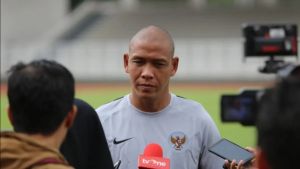JAKARTA - Pet cats are more susceptible to contracting COVID-19 from infected owners, compared to dogs, according to a new scientific study. In two preliminary studies to be presented at the European Congress of Clinical Microbiology & Infectious Diseases (ECCMID) in July, it was found that COVID-19 is more common in pets whose owners have the virus than wild animals, NBC News reports.
One of the studies conducted by researchers from the Netherlands, took 156 dogs and 154 cats from 194 households that tested positive for COVID-19.
Thirty-one cats and 23 dogs, about 17 percent of all animals had antibodies, indicating that they had previously contracted COVID-19. While six cats and seven dogs, 4.2 percent of all pets were found to have an active COVID-19 infection, as quoted by The Guardian's Jerusalem Post Friday, July 2.
The researchers also compared animals living in shelters, 9 percent of which had antibodies. They believe these results suggest that pets are more likely to catch it from humans than previously thought.

"If you have COVID-19, you should avoid contact with your cat or dog, as you would with anyone else," says Dr. Els Broens of the University of Utrecht in the Netherlands.
"The main concern, however, is not the health of the animals, their no or mild symptoms of COVID-19 - but the potential risk that pets could act as reservoirs of the virus and reintroduce it into the human population."
Another study presented at the conference found that cats sleeping in people's beds were more likely to catch COVID-19 from their owners, while dogs were unaffected by proximity.
Dorothee Bienzle, a professor of veterinary pathology at the University of Guelph in Ontario, Canada, who presented the findings, said, "If someone has COVID-19, there is a high chance they will pass it on to their pets.
"Cats, especially those sleeping in their owners' beds, appear to be particularly vulnerable. So, if you have COVID-19, I suggest you keep your distance from your pets and keep them out of your bedroom."

Bienzle also recommends keeping pets infected with the coronavirus away from people and other pets.
"Although the evidence that pets can transmit the virus to other pets is limited, it cannot be excluded. Similarly, although pets have not been shown to transmit the virus back to humans, the possibility cannot be completely ruled out," he said.
In the study, The Guardian noted, researchers tested 48 cats and 54 dogs from 77 different households that had tested positive for COVID-19 in the previous nine months.
They compared the results with 75 dogs and cats living in animal shelters and 75 stray cats they had seen in low-cost veterinary clinics.
Nearly 70 percent of pet cats and more than 40 percent of pet dogs tested positive for antibodies, compared to just under 10 percent of dogs and cats from animal shelters. That number dwindled to 3 percent for feral cats.
Most cases are mild, and only 20 percent of dogs and 30 percent of cats have symptoms. Dogs mostly lose their appetite and are lethargic, while cats show runny nose and difficulty breathing.
Findings demonstrating the susceptibility of domestic cats to COVID-19 are not new. Previous research has found cats infected by humans.

This is not surprising, as the 2003 SARS virus, which is somewhat similar to the new coronavirus that causes COVID-19, is known to infect cats.
Additionally, a previous Chinese study from 2020 found that cats are much more likely to catch COVID-19 from humans than dogs, and include a number of other animals susceptible to the virus, such as ferrets.
In addition, cats are also known to contract other coronaviruses, particularly feline coronavirus (FCoV), which can sometimes lead to the development of feline infectious peritonitis (FIP), which can be fatal for cats, as noted by Cornell University, USA.
This finding is also supported by previous research, such as the April 2021 Brazilian study published in the online open-access journal PLOS ONE, which found more cats than dogs with COVID-19. The question remains, why is this happening.
"It could be something as simple as most dogs have long noses, or the virus doesn't bind well to receptors on dog cells, or something with the immune system," says Colorado State University College of Veterinary Medicine and Biomedical Sciences. Prof Sue VandeWoude, who was not involved with the new research, according to NBC News.

However, while cats can catch COVID-19 and are more susceptible than dogs, it is believed by some experts they recover much faster than humans. This was theorized by scientists at the Latvian University of Life Sciences and Technologies (LLU) in late 2020, after it was discovered that at that time, not a single cat in the country had been found to have COVID-19, but many were found to have antibodies, indicates they have recovered from the infection.
Despite the potential for humans to infect their pets, there is no evidence to suggest that cats or dogs can infect uninfected humans with the virus. But still, the possibility remains. COVID-19 is zoonotic in origin, transmitted to humans via an unknown animal vector, although widespread scientific consensus points to bats as the origin of the virus itself.
Therefore, it is possible that the virus can mutate again in other animal hosts and then infect humans. While this doesn't happen in cats or dogs, it does in minks. In late 2020 in Denmark, a COVID-19 mutation among farm minks began to infect humans, causing widespread culling of farms.
Other animals are also susceptible to the virus. According to the US Centers for Disease Control and Prevention (US CDC), other animals susceptible to the virus include bank mice, hamsters, pigs, rabbits, raccoon dogs, tree mice and white-tailed deer, while mice are susceptible to the new variant. Meanwhile, chickens and ducks have not been found that are infected or capable of spreading the virus.
The English, Chinese, Japanese, Arabic, and French versions are automatically generated by the AI. So there may still be inaccuracies in translating, please always see Indonesian as our main language. (system supported by DigitalSiber.id)








